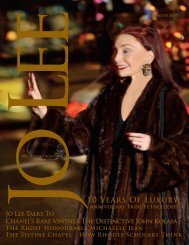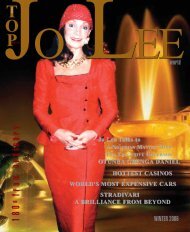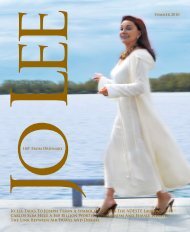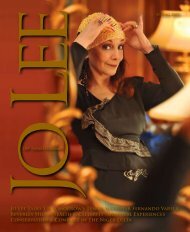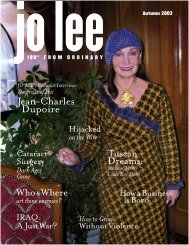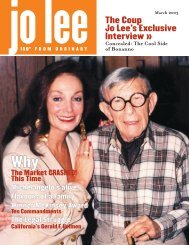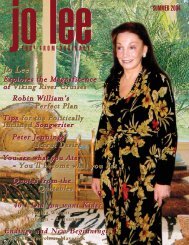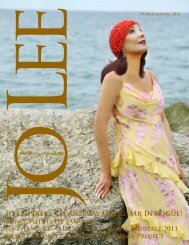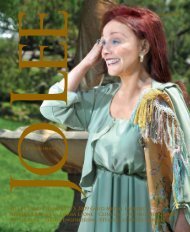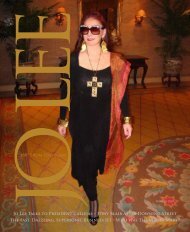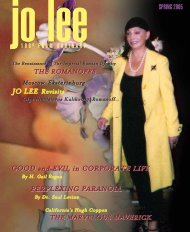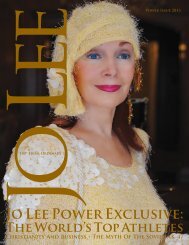WITS END - JO LEE Magazine
WITS END - JO LEE Magazine
WITS END - JO LEE Magazine
Create successful ePaper yourself
Turn your PDF publications into a flip-book with our unique Google optimized e-Paper software.
CAPRICCIO<br />
By<br />
Danilo Navas<br />
Nicaragua – Central America<br />
Danilo Navas is a Master of the history and diversity of World Music. The<br />
collecting and writing about its richness is for him, an all encompassing passion.<br />
DIALOGUE WITH THE GREAT<br />
PAQUITO<br />
D’RIVERA<br />
Paquito D’Rivera began his career as a child prodigy,<br />
playing both the clarinet and saxophone with the Cuban<br />
National Symphony Orchestra.<br />
DANILO NAVAS: Paquito, tell us about your initial years<br />
in the world of music. Do you recall when you made a<br />
conscious choice to become a musician?<br />
PAQUITO: Yes I do, Danilo. I was born to be a<br />
musician. My father was a classically trained saxophonist<br />
who imported musical instruments and accessories. He had<br />
a small shop in downtown Havana, close to Calle Prado. I<br />
grew up seeing and meeting people who would later<br />
become very influential in my life. Israel Cachao Lopez<br />
used to buy his bass strings at my father’s shop; Chico<br />
O’Farrill bought trumpets and Pedro Knight {Celia Cruz’s<br />
husband} used to stop by every now and then. My father<br />
had piano scores for sale and Lecuona would order sheet<br />
music frequently. Chocolate Armenteros also stopped by.<br />
You know, my father had only achieved a sixth grade<br />
education. However, he acquired a varied, rich culture. He<br />
was an avid reader, and he introduced me to the world of<br />
literature. He was also an excellent writer. He wrote<br />
beautiful letters, and taught me to write at a very young<br />
age. Music and Literature have always been a very<br />
important part of my life.<br />
DN: Where were you in your musical development when<br />
the Cuban Revolution occurred?<br />
PAQUITO: I visited New York in 1960. I was still a child<br />
and was performing for audiences in a big orchestra. I was<br />
starting to discover the art of improvisational techniques<br />
and I was also starting out as a classical saxophonist,<br />
which was exactly what my father wanted. I think I was<br />
about eleven years old at the time.<br />
DN: How important was it for you to move to the United<br />
States?<br />
PAQUITO: Ever since I was a child I dreamed of coming<br />
to New York City. It’s been another world. I always wanted<br />
to come here, to have the opportunity of knowing and<br />
working in diverse musical genres and to forge ahead with<br />
my development as an active writer. I’ve already published<br />
two books, and in 2002, won an ‘Award in Journalism.’<br />
DN: What role does education play in your career?<br />
PAQUITO: Oh, the musicians who perform with me are<br />
also teachers. So every concert I give, aside from being<br />
entertaining, becomes an educational experience. I always<br />
talk about the origins of the rhythms I’m playing and<br />
attempt to describe what they are. Since I don’t have time<br />
to teach formally, my concerts have become my lectures.<br />
78 <strong>JO</strong> <strong>LEE</strong><br />
SUMMER 2007



